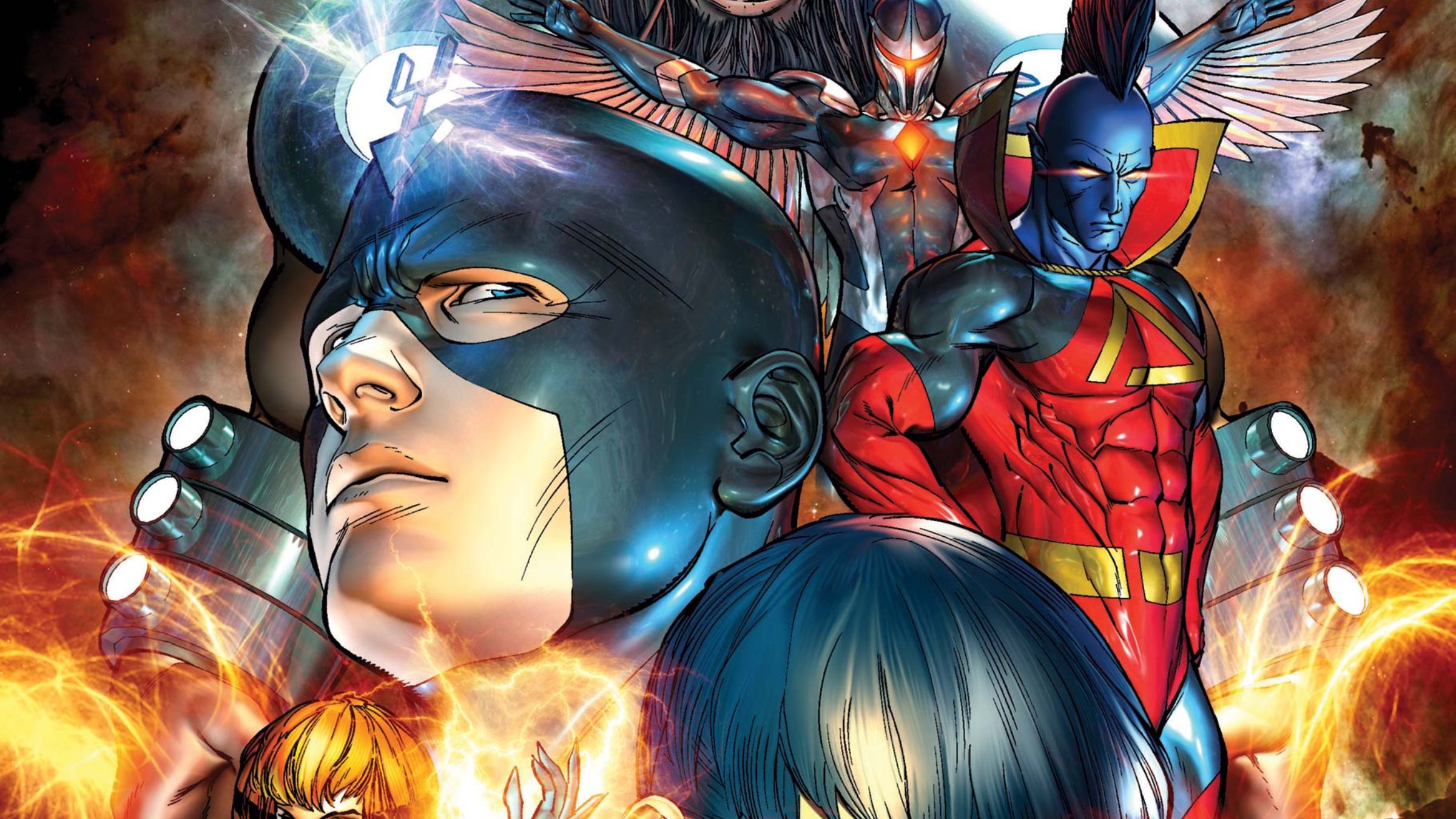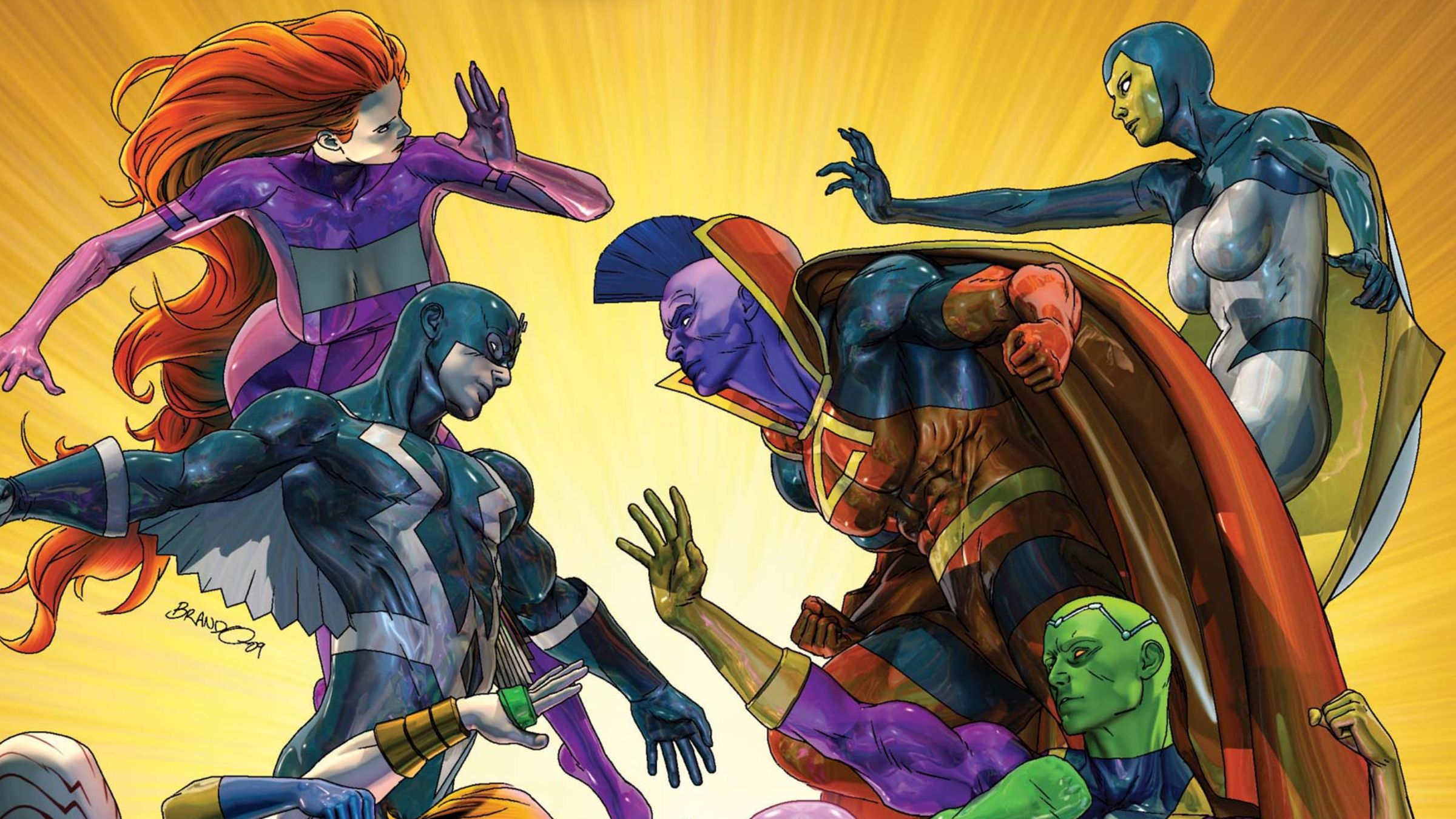
Marvel Comics frequently explores innovative territories in storytelling, offering exciting new perspectives on familiar characters. This is advantageous as it keeps fans engaged with fresh twists. However, this approach also presents a challenge since Marvel is known for going all-out, resulting in an abundance of events that can be found throughout their history. Consequently, some readers, especially those who aren’t avid collectors, might miss significant moments. For instance, the cosmic events like the 2009 “War of Kings” tend to receive less attention compared to others.
The War of Kings swiftly transformed into a power struggle, as various belligerent characters and civilizations battled fiercely in pursuit of victory. This scenario seems reminiscent of a typical Marvel plot, but it delves much deeper. While certain Marvel events rise and fall, others give birth to persistent issues that erupt catastrophically. War of Kings rests on a bedrock laid by Annihilation, Secret Wars, the drama surrounding Summers’ family, House of M, and the Kree’s genetic tinkering with Inhumans.
A Brewing Conflict in the Cosmos

Similar to numerous occurrences within the Marvel Universe, the epic saga known as War of Kings brought together a multitude of characters from various series to orchestrate a colossal crossover clash. In this cosmic battle, two well-known factions of Marvel found themselves locked in combat: on one side stood the Shi’ar Empire, governed by Vulcan; while on the opposite side, the Kree Empire, surprisingly under the leadership of the Inhumans at that particular time. Additionally, the Starjammers, Guardians of the Galaxy, Darkhawk, and Nova Corps became entangled in this chaotic conflict, with the latter making a valiant effort to prevent the confrontation from escalating further.
The tale of the Inhumans unfolds after the events of “Secret Invasion”, where they venture into the cosmos, or Kree territory, in search of their role in the universe. It’s crucial to understand that by this point, the Inhumans had endured much and were relentlessly seeking what they felt was rightfully theirs. This pursuit was bound to ignite a conflict, but another growing issue amplified it significantly.
The Shi’ar are notoriously power-hungry and aggressive, considering themselves supreme rulers of the universe with an unquestionable claim. On days when they’re being relatively benevolent, they can be intimidating. However, when the Inhumans crossed paths with them, a new emperor was in power among the Shi’ar, seeking to increase his influence (or make a name for himself). This new ruler turned out to be Vulcan, the long-lost sibling of Cyclops (Scott Summers). Things quickly escalated and grew complex when Havok (another Summers brother) took control of the Starjammers and allied with the Guardians of the Galaxy to thwart Havok/the Shi’ar.
Additional Moving Pieces of the War of Kings

Currently, the Nova Corps is still in the process of reorganization, with its newer members barely receiving proper training. This leaves them significantly underprepared for any potential conflict, not to mention facing formidable opponents like the Shi’ar Imperial Guard. It isn’t hard to envision how their lack of readiness could pose challenges for the Nova Corps as they strive to safeguard the broader galaxy in their latest endeavor.
In essence, numerous factors prevent the War of Kings from growing more intense. Various perspectives on the conflict exist among the Shi’ar factions, and although one aimed to cease it, she was eliminated instead. This is when The Fraternity of Raptors becomes involved, as a member of this group manages to deceive the Shi’ar, even though Darkhawk tries to intervene.
The Lasting Effects of the War of Kings

The War of Kings served as more than just a platform for Marvel’s cosmic characters to engage in combat; their conflicts had profound and enduring impacts on the universe, affecting both individuals and large-scale entities. The temporary disappearance of Black Bolt and Vulcan necessitated a power vacuum, resulting in Mudusa assuming leadership among the Inhumans and Gladiator becoming the new Shi’ar Majestor.
Most significantly, it resulted in a division within Marvel that was very real, as the conflicts’ intense climax violently ripped a gaping chasm in the continuum of space and time. This breach serves as a vivid illustration of the potential catastrophe; it paved the way for the events depicted in the “Cancerverse”. The ominous title itself should be enough to warn us about how dire the circumstances became. Furthermore, the end of “War of Kings” set the stage for Thanos’ return, this time with a fierce determination.
The War of Kings wasn’t solely negative, as it infused fresh energy into the cosmic universe. It provided a fresh perspective for the Nova Corps, reinforced the significance of the Guardians of the Galaxy within the broader universe, and stirred things up for the Starjammers.
Read More
- Survivor’s Colby Donaldson Admits He Almost Backed Out of Season 50
- Where Winds Meet: How To Defeat Shadow Puppeteer (Boss Guide)
- Best Controller Settings for ARC Raiders
- How to Build a Waterfall in Enshrouded
- Gold Rate Forecast
- Monster Hunter Stories 3’s character creator is officially revealed — and it features a cosmetic that’s normally paywalled in the mainline games
- Assassin’s Creed Black Flag Resynced, The Worst-Kept Secret in Gaming, Rated by PEGI
- How to Get the Bloodfeather Set in Enshrouded
- The Lord of the Rings Card Game With Telltale-Style Storytelling Was Being Made at Eidos Montreal – Rumour
- Mishal Husain talks her new chapter, pressing Nigel Farage on Russia and the recent BBC troubles
2025-07-13 05:40